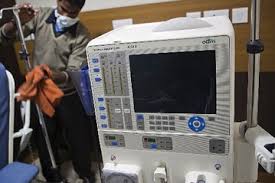Fresenius Pays $231 Million to Resolve Long-Standing FCPA Enforcement Action (Part I of III)

Fresenius Medical, the largest supplier of dialysis equipment and services agreed to pay $231 million to the Justice Department and the SEC to resolve FCPA violations in 17 countries in Africa, the Middle East and Europe.
Fresenius entered a non-prosecution agreement (here) with the Justice Department, in which it agreed to pay an $87 million payment and a two-year corporate monitor. Fresenius agreed to enhance its compliance program and self-report to DOJ the third year. In the SEC enforcement action, Fresenius agreed to disgorge $147 million in an administrative order (here).
According to the settlement, Fresenius paid approximately $30 million in bribes over a ten-year period in a number of countries, including Angola, Benin, Bosnia, Burkina Faso, Cameroon, Chad, China, Gabon, Ivory Coast, Mexico, Morocco, Niger, Saudi Arabia, Senegal, Serbia, Spain, and Turkey. According to DOJ, Fresenius earned approximately $140 million from its corrupt bribery payments.

Under the FCPA Corporate Enforcement Policy, Fresenius received credit for voluntary disclosure because it disclosed in timely fashion; partial credit for its cooperation, including a thorough internal investigation; making regular factual presentations to the Justice Department; providing facts learned during witness interviews; producing documents in compliance with foreign data privacy laws; translating key documents; and disclosing conduct outside the scope of its initial voluntary self-disclosure; however, Fresenius did not receive full cooperation credit because it did not timely respond to requests by DOJ and, at time, did not provide fulsome responses to requests for information.
Fresenius also implemented remedial measures, including removal of at least ten employees who were involved in the misconduct or failed to detect the misconduct; enhancing its compliance program, controls and anti-corruption training; terminating business relationships with third-party agents and distributors who participated in misconduct; adopted heightened controls on the selection and use of third parties; withdrawing from consideration of pending public contracts potentially related to misconduct. The Justice Department noted, however, that some misconduct continued to occur until 2016, and that appointment of a monitor for a two-year period was appropriate.
After considering all of these factors, the Justice Department did not find that Fresenius was entitled to a declination. Instead, DOJ and Fresenius agreed to enter into a non-prosecution agreement and agreed to a 40 percent discount from the bottom of the U.S. Sentencing Guideline range and gave credit for Fresenius’ agreement to pay the SEC $147 million in disgorgement.

In its settlement, the SEC noted that despite red flags of corruption, Fresenius “devoted insufficient resources to compliance.” In a number of high-risk countries, Fresenius failed to train employees or perform any due diligence of third-party agents. The SEC noted that senior managers directed employees to destroy resources of certain transactions to hide corrupt conduct.














